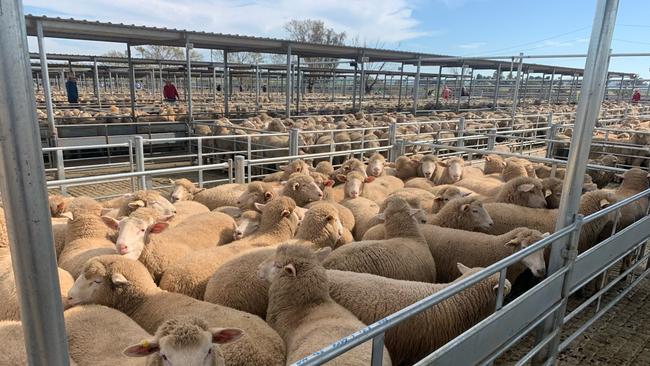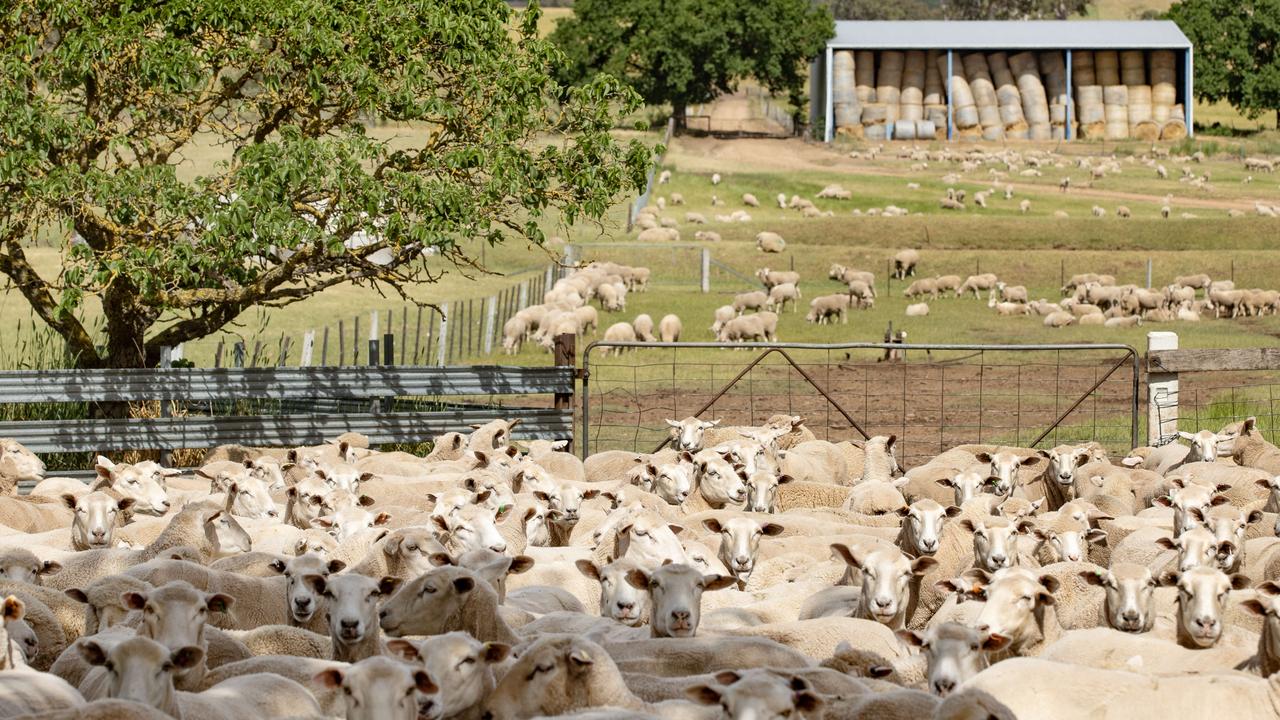Sucker lambs break national record at Wagga Wagga
The lambs were sold by farmers from Uranquinty in NSW and were purchased by a processor from a different state.

New-season sucker lambs have sold for an Australian-record price at Wagga Wagga in NSW today, as processors chase lambs with weight.
A pen of 45 second-cross lambs, out of first-cross ewes and sired by Armdale Poll Dorset rams, fetched a bid of $331.20.
They were sold by Gordon and Wayne Rodham, Uranquinty, south of Wagga Wagga.
Their agent Mark Logan, RH Blake and Co, said the price was an Australian record for suckers and topped the previous record of $320, recorded by the Rodhams three seasons ago.
The lambs were purchased by Victorian processor Herds, and were expected to supply domestic customers.
They were March-drop lambs and had been on crepe feeders with their mothers, weighing approximately 32kg dressed, or 60kg-plus liveweight.
This would work out to “around $10/kg”, Mr Logan said.
The seconds made $240, with the lot averaging $319.
The bought-in first-cross ewes that produced the lambs were bred by Ian Roberts.
Mr Logan said the Rodhams had a unique approach to managing triplets, moving any multiple lambing ewes and her offspring from the paddock to enclosed yards to ensure they all mothered-up.
He said supply of old-season lambs were declining in quality and numbers, while new-season suckers were still in tight supply. The peak of suckers at Wagga was expected towards the end of September, whereas Victorian markets would see the big spring flush of young lambs in November.
Meanwhile, the absence of major heavy sheep buyer Fletchers, due to a self-imposed shutdown due to Covid-19 outbreaks in Dubbo, saw prices for heavy sheep fall $10-$20 week on week at Wagga Wagga today.
This continued the pattern witnessed at sales in Victoria earlier this week.
Mr Logan said many producers also chose to withhold heavy sheep from market, with the expected yarding at Wagga Wagga falling from almost 7000 sheep to 5700 today.
“The indications are that Fletchers are expected to be back next week,” he said.
However, he said sheep numbers being yarded now were on the lower side, and with plenty of feed in paddocks, producers wouldn’t mind holding sheep back from market if needed.


